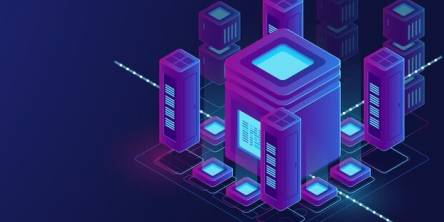Tips To Modernize Data Management in Modern Age

Data, in general, has become a rockstar in the business world. As companies continue their pursuit of efficiency, flexibility, better decision-making, and improved customer experiences, establishing robust data management has rendered them the need of the hour. Plus, given the continued evolution of technologies and the many solutions they provide, there is now a growing emphasis on modernizing data management. After all, how else should one keep up with the rapidly evolving security and app requirements and demands? And let us not forget that managing data safely and in a way compliant with a world of regulatory requirements needs painstaking stratification to source, cleanse, integrate, store, and prepare data for further use. I was wondering how you can do that too. We have got your back!
In the digital age, data is the lifeblood of businesses and organizations, fueling innovation, decision-making, and growth. However, the data management landscape constantly evolves, presenting exciting opportunities and complex challenges. Traditional data management approaches often struggle to keep pace with the demands of today's dynamic and data-rich environment. Organizations must embark on a modernization journey to thrive in this data-abundance era. In this blog, we will embark on a comprehensive exploration of the myriad ways to modernize data management. From harnessing the potential of cutting-edge technologies like AI and cloud computing to adopting agile data governance strategies, we will uncover the procedures and best practices that can empower you to unlock the full potential of your data assets while ensuring their security, accessibility, and compliance.
4 Handy Tips for Data Modernization
- Revamp data management architecture: Let us begin with the first step. Companies must start their data management modernization projects by analyzing the existing data management architecture. Identify the areas that need improvement or demonstrate the potential for improvement. Modern data management architectures usually involve distributed and scalable systems and are vital to enabling better resource utilization. They are also conducive to seamless data integration and data sharing.
- Build AI-driven data management solutions: For companies to remain competitive in the current market, it has become imperative for companies to glean the best possible insights from their data. This is where artificial intelligence (AI) and machine learning (ML) come in, which help automate and optimize data management tasks. AI, for example, can help with data integration, data cleansing, data quality assessment, and even data governance. The insights thus achieved can drive better decision-making and innovation and facilitate the discovery of new opportunities.
- Map data assets: The next step in this journey is understanding and documenting all data assets across the organization. This involves identifying sources, types, formats, and data ownership. Such a comprehensive data asset map empowers companies to have a clear view of their data landscape and, thus, ensures that they can make informed decisions about data utilization and governance.
- Data democratization: Companies must empower stakeholders with easy access to data and analytical tools, i.e., democratize their data. This involves eliminating data silos and providing self-service capabilities. Companies must also empower non-technical users to explore and analyze data without needing assistance from IT or data science teams.
Data modernization best practices, including the ones listed above, help organizations successfully modernize their data management practices and, consequently, tap into the full potential of their data assets to drive innovation and growth. But one must not forget that data modernization isn't just about implementing technologies; it is as much about fostering a data-driven culture within the organization. So, do not forget to encourage employees to base their decisions on data and insights. It would also be a wise idea to identify and reward data-driven behaviors. Such a cultural shift in the organization will help foster better collaboration and utilization of data across all levels of the organization.
Similar Articles
In the fast-paced world of supply chain management, it is vital to coordinate logistics operations for businesses aiming to meet customer demands, reduce costs, and stay competitive.
The handling of projects may be characterized as a laborious and complex responsibility. From the formation of employment positions through allocating resources for managing work in progress, significant amounts of business hours and resources are used.
Discover the perfect project management software for your business with our guide. Explore key considerations to streamline your projects effectively. Choose wisely
Unless you live under a rock, you know that television and the overall idea of content consumption have changed drastically and beyond anything we would have imagined three to four decades ago. Over-the-top (OTT) apps continually reshape today's future of television
Unless you have been living under a rock, you know that the modern world has come to rely on mobile apps immensely. From simply being able to send texts to people over the internet to wiring money across the globe — mobile apps help us do it all.
We live in an immensely technologically advanced age. This is why it is no surprise that a rapidly growing number of companies are increasingly deliberating on the big question: is it time to migrate their legacy systems? While we cannot say why an individual company would need to migrate its systems, we do know why most companies want to migrate its legacy systems
Blockchain technology and the concept of a decentralized "Web3" internet have generated tremendous hype and interest in recent years. Beyond cryptocurrencies like Bitcoin, the potential for decentralized applications built on blockchain platforms has been driving innovation.
In today's digital age, a compelling logo is essential for any business or brand looking to establish a strong online presence. Your logo is often the first thing that potential customers see, and it can significantly impact their perception of your brand.
In an era where digital assets and data are the lifeblood of businesses, ensuring robust cloud security has never been more crucial. As a rapidly growing number of companies and other entities in the world embrace cloud computing, it has become vital to focus on the one factor that remains all-important, no matter the technology involved: security.









